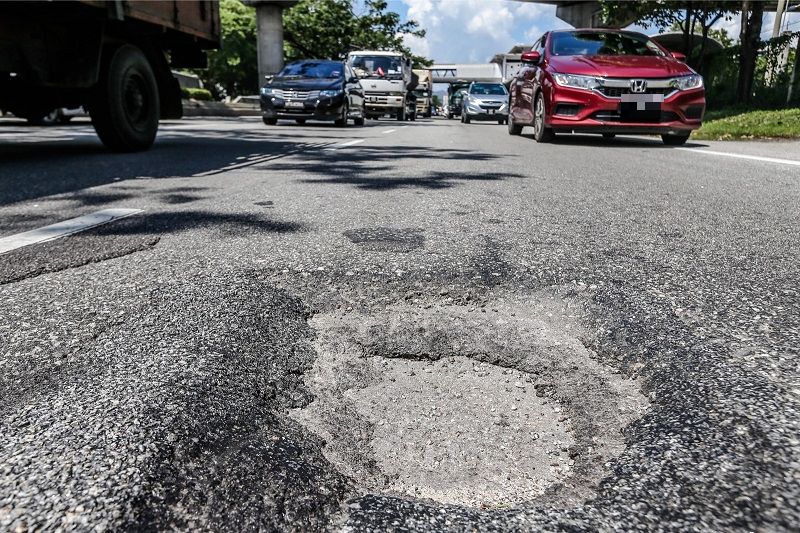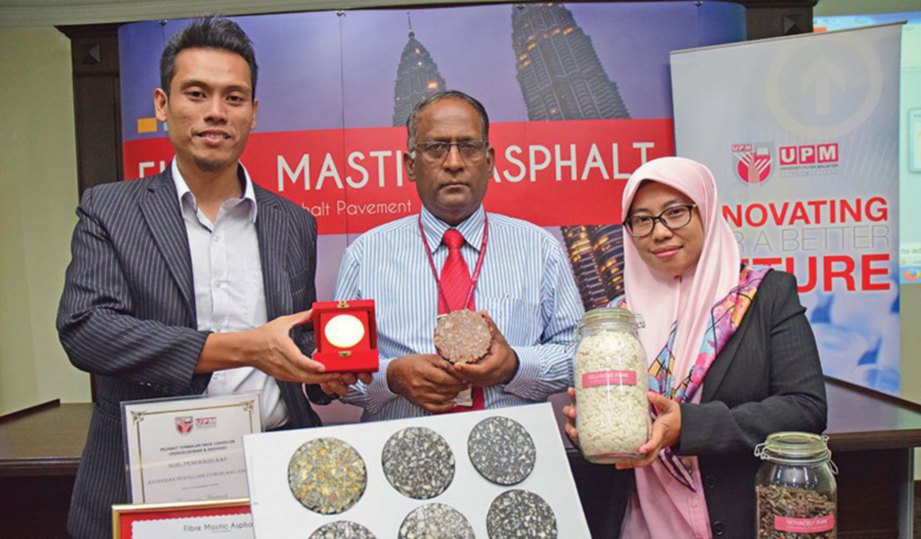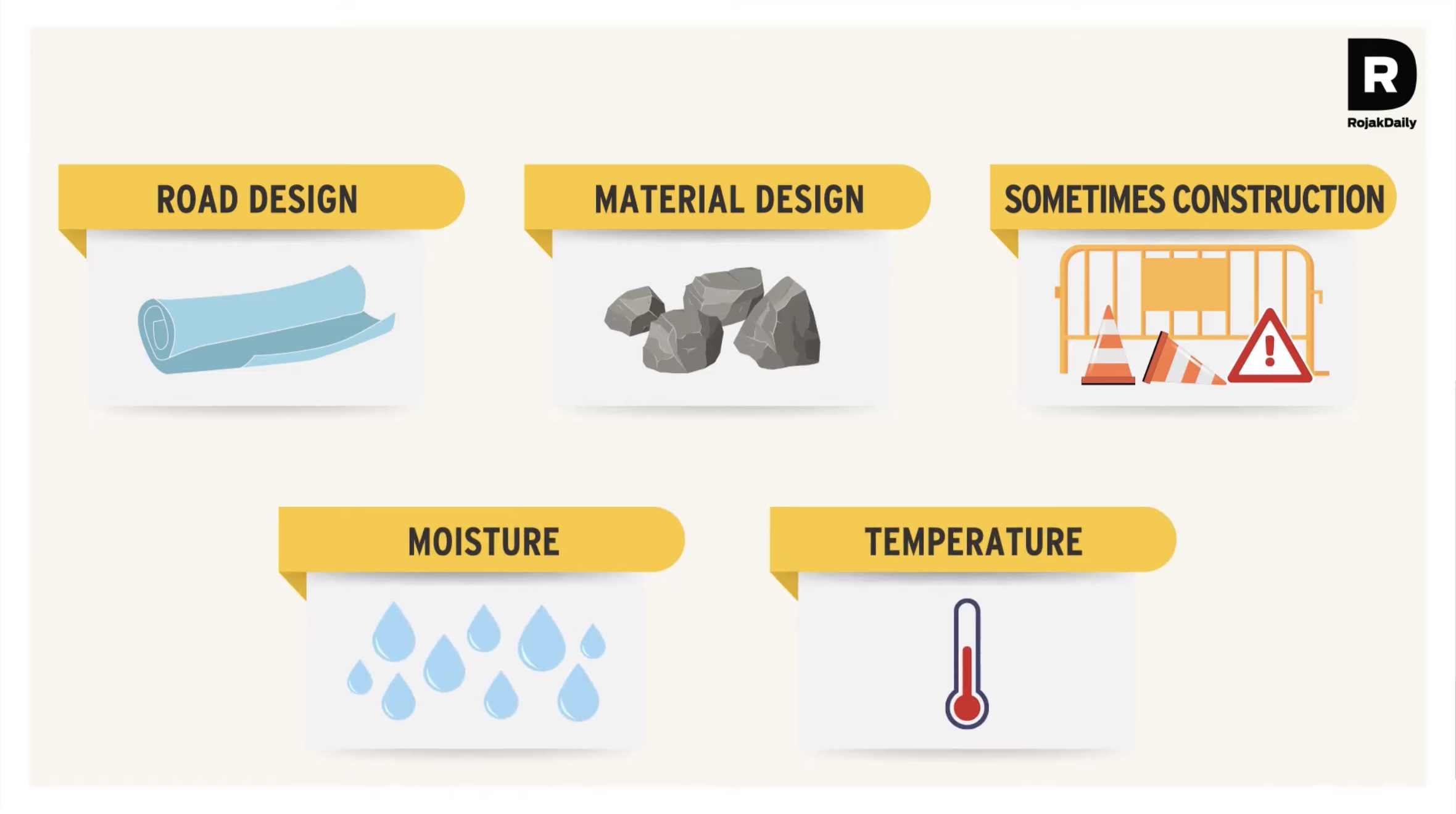Potholes have been taking the centre stage in news lately, ever since Science, Technology and Innovation Minister Khairy Jamaluddin Abu Bakar met with a minor accident caused by a pothole, and two unfortunate deaths reported after the incident.
We're so used to seeing and avoiding potholes that sometimes we forget how dangerous it can be especially for those who are riding bicycles or motorcycles.
There are so many potholes in Malaysia despite campaigns like “Aku Janji Zero Potholes” by the Works Ministry which first ran between 2016 and 2018, and revived in July last year.

According to a statement by the Works Ministry published in Malay Mail, the ministry allocated RM1.09 billion for federal road maintenance throughout the country, including electricity, traffic lights and street lamp bills for 2021.
“A total of 4,091 public infrastructure complaints were received by the ministry and PWD till November 30. From the total, 1,473 complaints were regarding damaged roads. All complaints have been processed and action has been taken by JKR.
“Almost 200,000 potholes were found and repaired through monitoring and patrols by PWD in 2019 while 64,000 potholes were recorded with action taken as of last June,” the statement read.
According to Universiti Putra Malaysia Department of Civil Engineering lecturer Prof Dr Ratnasamy Muniandy, there are several reasons for this.
Potholes form when there are cracks on the roads, which, over time, joins and causes the road materials to dislodge.
"There are couple of factors involved in road failure. It can be road design, it can be material design, sometimes construction and not forgetting environmental factors such as moisture and temperature," Dr Ratnasamy told Rojak Daily in an interview in 2018.
In the same year, Malay Mail wrote an article quoting Public Works Department (PWD), the Malaysian Highway Authority (MHA), the Kuala Lumpur City Hall (DBKL) and the Petaling Jaya City Council (MBPJ) regarding the issue.
In the article, all four departments have insisted that the standards of roads in the country meets the standards set by World Road Association, of which Malaysia is a member of.
The association specifies clear standards for the design and safety aspects of road.

The departments said that problem occurs when third party contractors are involved.
City Hall had said that 70 per cent of potholes and damaged roads were caused by sub-par remedial works by contractors, especially those hired by utility and development companies.
The other departments echoed the statement. Rapid development also does not help the situation.
Dr Ratnasamy said that in light of the shortcomings in the road pavement performance, universities worldwide, including UPM, have been working on technologies to make roads better.
One of the technology the university has worked on is called the Fiber Mastic Asphalt (FMA).
"Fiber Mastic Asphalt is basically asphalt mixture that has more fiber in it. Fibers basically forms a micromesh.
"Micromesh is like tiny steel fibers in concrete and so on," he explains.
FMA helps to prevent the drain down of water and keeps the binder in the mixture for a long time. This makes the road structure itself stronger and more resistant towards environmental elements such as moisture.
If our roads aren't that bad and meets the standards that most developed countries follows, perhaps it's time to look at technologies such as FMA to make the roads last longer.
That, and perhaps taking stern action against contractors that damage our roads, might just be what we need.
You can watch our informative 'Now You Know Lah' video here:
We're so used to seeing and avoiding potholes that sometimes we forget how dangerous it can be especially for those who are riding bicycles or motorcycles.
There are so many potholes in Malaysia despite campaigns like “Aku Janji Zero Potholes” by the Works Ministry which first ran between 2016 and 2018, and revived in July last year.

According to a statement by the Works Ministry published in Malay Mail, the ministry allocated RM1.09 billion for federal road maintenance throughout the country, including electricity, traffic lights and street lamp bills for 2021.
“A total of 4,091 public infrastructure complaints were received by the ministry and PWD till November 30. From the total, 1,473 complaints were regarding damaged roads. All complaints have been processed and action has been taken by JKR.
“Almost 200,000 potholes were found and repaired through monitoring and patrols by PWD in 2019 while 64,000 potholes were recorded with action taken as of last June,” the statement read.
So, why do we still have so many potholes?

According to Universiti Putra Malaysia Department of Civil Engineering lecturer Prof Dr Ratnasamy Muniandy, there are several reasons for this.
Potholes form when there are cracks on the roads, which, over time, joins and causes the road materials to dislodge.
"There are couple of factors involved in road failure. It can be road design, it can be material design, sometimes construction and not forgetting environmental factors such as moisture and temperature," Dr Ratnasamy told Rojak Daily in an interview in 2018.
In the same year, Malay Mail wrote an article quoting Public Works Department (PWD), the Malaysian Highway Authority (MHA), the Kuala Lumpur City Hall (DBKL) and the Petaling Jaya City Council (MBPJ) regarding the issue.
In the article, all four departments have insisted that the standards of roads in the country meets the standards set by World Road Association, of which Malaysia is a member of.
The association specifies clear standards for the design and safety aspects of road.

The departments said that problem occurs when third party contractors are involved.
City Hall had said that 70 per cent of potholes and damaged roads were caused by sub-par remedial works by contractors, especially those hired by utility and development companies.
The other departments echoed the statement. Rapid development also does not help the situation.
What can be done?

Dr Ratnasamy said that in light of the shortcomings in the road pavement performance, universities worldwide, including UPM, have been working on technologies to make roads better.
One of the technology the university has worked on is called the Fiber Mastic Asphalt (FMA).
"Fiber Mastic Asphalt is basically asphalt mixture that has more fiber in it. Fibers basically forms a micromesh.
"Micromesh is like tiny steel fibers in concrete and so on," he explains.
FMA helps to prevent the drain down of water and keeps the binder in the mixture for a long time. This makes the road structure itself stronger and more resistant towards environmental elements such as moisture.
If our roads aren't that bad and meets the standards that most developed countries follows, perhaps it's time to look at technologies such as FMA to make the roads last longer.
That, and perhaps taking stern action against contractors that damage our roads, might just be what we need.
You can watch our informative 'Now You Know Lah' video here:





